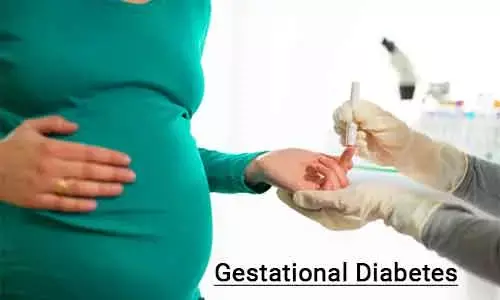- Home
- Medical news & Guidelines
- Anesthesiology
- Cardiology and CTVS
- Critical Care
- Dentistry
- Dermatology
- Diabetes and Endocrinology
- ENT
- Gastroenterology
- Medicine
- Nephrology
- Neurology
- Obstretics-Gynaecology
- Oncology
- Ophthalmology
- Orthopaedics
- Pediatrics-Neonatology
- Psychiatry
- Pulmonology
- Radiology
- Surgery
- Urology
- Laboratory Medicine
- Diet
- Nursing
- Paramedical
- Physiotherapy
- Health news
- Fact Check
- Bone Health Fact Check
- Brain Health Fact Check
- Cancer Related Fact Check
- Child Care Fact Check
- Dental and oral health fact check
- Diabetes and metabolic health fact check
- Diet and Nutrition Fact Check
- Eye and ENT Care Fact Check
- Fitness fact check
- Gut health fact check
- Heart health fact check
- Kidney health fact check
- Medical education fact check
- Men's health fact check
- Respiratory fact check
- Skin and hair care fact check
- Vaccine and Immunization fact check
- Women's health fact check
- AYUSH
- State News
- Andaman and Nicobar Islands
- Andhra Pradesh
- Arunachal Pradesh
- Assam
- Bihar
- Chandigarh
- Chattisgarh
- Dadra and Nagar Haveli
- Daman and Diu
- Delhi
- Goa
- Gujarat
- Haryana
- Himachal Pradesh
- Jammu & Kashmir
- Jharkhand
- Karnataka
- Kerala
- Ladakh
- Lakshadweep
- Madhya Pradesh
- Maharashtra
- Manipur
- Meghalaya
- Mizoram
- Nagaland
- Odisha
- Puducherry
- Punjab
- Rajasthan
- Sikkim
- Tamil Nadu
- Telangana
- Tripura
- Uttar Pradesh
- Uttrakhand
- West Bengal
- Medical Education
- Industry
Gestational diabetes linked to short interpregnancy intervals, finds study

Women with Gestational Diabetes Mellitus (GDM) have shorter pregnancy intervals, finds a study. The study was published in the journal, 'Diabetes' 2020 and presented at ADA virtual summit 2020.
Researchers from the Medical College of Wisconsin, USA conducted a study to evaluate whether women with GDM have higher rates of short interpregnancy intervals. Short interpregnancy intervals are defined as pregnancies conceived within 18 months after a previous birth. Short interpregnancy intervals are associated with several adverse perinatal outcomes and their prevention is a public health priority. Women with a history of gestational diabetes (GDM), and whose interpregnancy intervals are short, further decrease the timeframe for postpartum glucose optimization and testing for type 2 diabetes prior to the next conception.
The study was conducted between 2011-2017 by collecting the data from National Survey on Family Growth and the data was analysed. There were 28,443 participants aged 18-44y. Primary outcome of the study was to assess the short interpregnancy intervals. The rates of short interpregnancy intervals were compared between women with and without GDM using bivariate analysis.
The key findings of the study were:
- Out of 28,443 women included in the analysis, 2,827 (9.9%) had diagnosis of GDM.
- Short interpregnancy intervals rates were higher in women with GDM compared to controls (56.4% vs. 43.6%, p<0.001).
- In bivariate analysis, GDM significantly increased the odds of short interpregnancy intervals compared to controls.
- After controlling for maternal age, body mass index, race/ethnicity, marital status, education, insurance, family income, contraception use and history of sexually transmitted infections, GDM remained to be independently associated with a higher rate of short interpregnancy intervals.
Thus, the researchers concluded that Women with GDM have higher rates of short interpregnancy intervals. They also added that reducing short interpregnancy intervals in this population will not only reduce perinatal risks but will also allow time for adequate preconception counseling for screening and management of type 2 diabetes prior to future pregnancy.
For further reading, click the following link: https://doi.org/10.2337/db20-192-OR
BDS, MDS
Dr.Niharika Harsha B (BDS,MDS) completed her BDS from Govt Dental College, Hyderabad and MDS from Dr.NTR University of health sciences(Now Kaloji Rao University). She has 4 years of private dental practice and worked for 2 years as Consultant Oral Radiologist at a Dental Imaging Centre in Hyderabad. She worked as Research Assistant and scientific writer in the development of Oral Anti cancer screening device with her seniors. She has a deep intriguing wish in writing highly engaging, captivating and informative medical content for a wider audience. She can be contacted at editorial@medicaldialogues.in.
Dr Kamal Kant Kohli-MBBS, DTCD- a chest specialist with more than 30 years of practice and a flair for writing clinical articles, Dr Kamal Kant Kohli joined Medical Dialogues as a Chief Editor of Medical News. Besides writing articles, as an editor, he proofreads and verifies all the medical content published on Medical Dialogues including those coming from journals, studies,medical conferences,guidelines etc. Email: drkohli@medicaldialogues.in. Contact no. 011-43720751


